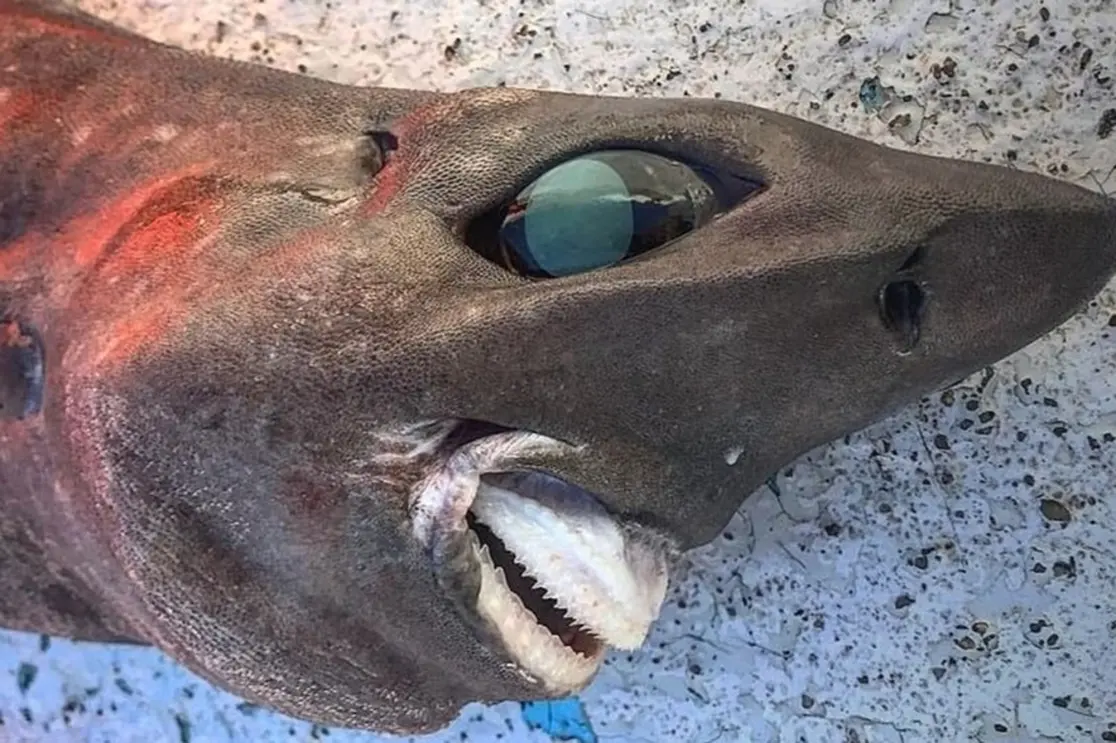Rare deep-sea shark found in Australia branded ‘stuff of nightmares’
Experts believe mystery creature may be of endeavour dog fish species
Your support helps us to tell the story
From reproductive rights to climate change to Big Tech, The Independent is on the ground when the story is developing. Whether it's investigating the financials of Elon Musk's pro-Trump PAC or producing our latest documentary, 'The A Word', which shines a light on the American women fighting for reproductive rights, we know how important it is to parse out the facts from the messaging.
At such a critical moment in US history, we need reporters on the ground. Your donation allows us to keep sending journalists to speak to both sides of the story.
The Independent is trusted by Americans across the entire political spectrum. And unlike many other quality news outlets, we choose not to lock Americans out of our reporting and analysis with paywalls. We believe quality journalism should be available to everyone, paid for by those who can afford it.
Your support makes all the difference.An Australian fisherman discovered a unique-looking creature that has been branded “the stuff of nightmares.”
The large-eyed shark was pulled lifeless from the sea off the Australian coast with a protruding white mouth and teeth and a pointed nose resembling a dog.
Trapman Bermagui from Sydney was baffled by his unlikely catch from 2,133 feet underwater.
The photo shared on social caused a stir online as users commented on its appearance and tried to confirm what it was.

Since uploading a snap of the predator's head to Facebook on Monday, it has been liked over 1,000 times and commented on by around 250 people.
One person reacted: “Stuff of nightmares there.”
“Looks really happy he's just had his braces off so is accentuating the gums and teeth," a second added.
A third even suggested it wasn't a real shark at all, they said: “Man made.. either a sculptor or mixing of DNA with the assistance of the crisper….”
Giving his own verdict Mr Bermagui said: “Totally not a cookiecutter. It's a rough skin shark, also known as a species of endeavour dog shark.
“These sharks are common in depths greater than 600 meters. We catch them in the wintertime usually.”
Dean Grubbs, associate director of research at the Florida State University Coastal and Marine Laboratory, also weighed in.
He told Newsweek the species appears to be Centroscymnus owstoni, also called the roughskin dogfish.
“In my deep-sea research, we have caught quite a few of them in the Gulf of Mexico and in the Bahamas,” Mr Grubbs said.
“Ours have come from depths of 740 to 1160 meters (~2,400 to 3,800 feet), so a bit deeper than this report. They are in the family Somniosidae, the Sleeper Sharks, the same family of the Greenland Shark, but obviously a much smaller species.”
Christopher Lowe, professor and director of the California State University Long Beach Shark Lab, provided a different view. “Looks to me like a deepwater kitefin shark, which are known in the waters off Australia," he said, though he noted he could not see the whole body or size of the shark.
“It looks like Dalatias lata to me; however, we discover new species of deepwater shark all the time and many look very similar to each other.”
According to the Shark Research Institute Dalatias lata sharks prefer deep waters, hovering near the seafloor at depths of up to 1,800 meters (4,950 feet) in the Atlantic, Indian, and Pacific Oceans.




Join our commenting forum
Join thought-provoking conversations, follow other Independent readers and see their replies
Comments